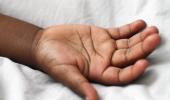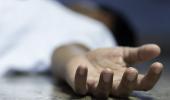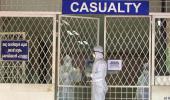Amidst concerns over the outbreak of deadly virus infections like Nipah in Kerala, the state on Monday reported a rare case of recovery from amoebic meningoencephalitis, which has a 97 percent mortality rate.

State health minister Veena George announced that a 14-year-old boy undergoing treatment for the disease has recovered.
She described this as a rare occurrence in the country, given the high mortality rate of the disease.
Only 11 people worldwide have recovered from amoebic meningoencephalitis, George noted, praising the team that led the coordination and treatment efforts.
A highly rare but extremely lethal central nervous system infection, amoebic meningoencephalitis, has been identified as a threat to human health.
Caused by free-living amoebae, this deadly infection is typically contracted from freshwater sources such as lakes, rivers, and streams.
According to an official statement in Kozhikode, when the case was reported, a meeting was convened under the health minister's leadership, and special cautionary instructions were issued.
Health workers at the primary health centre in Melady in Kozikode district suspected that the boy's symptoms might be meningoencephalitis and alerted the authorities.
"The boy had an epileptic seizure and was admitted to a private hospital in Kozhikode on the same day. The Health department provided Miltefosine medicine (a broad-spectrum anti-microbial used to treat free-living amoeba infections), and he recovered after three weeks of treatment. Early detection and access to available treatments contributed to his recovery," the statement said.
Following the outbreak of disease, preventive measures were strengthened.
On July 5, a special meeting chaired by Chief Minister Pinarayi Vijayan led to instructions for molecular testing facilities to confirm the disease in its early stages.
On May 28, the health minister called a meeting to prepare treatment guidelines under expert leadership, resulting in the release of a treatment protocol for amoebic meningoencephalitis on July 20.
This was the first comprehensive treatment protocol for the disease in the country, the state health department claimed.











 © 2025
© 2025